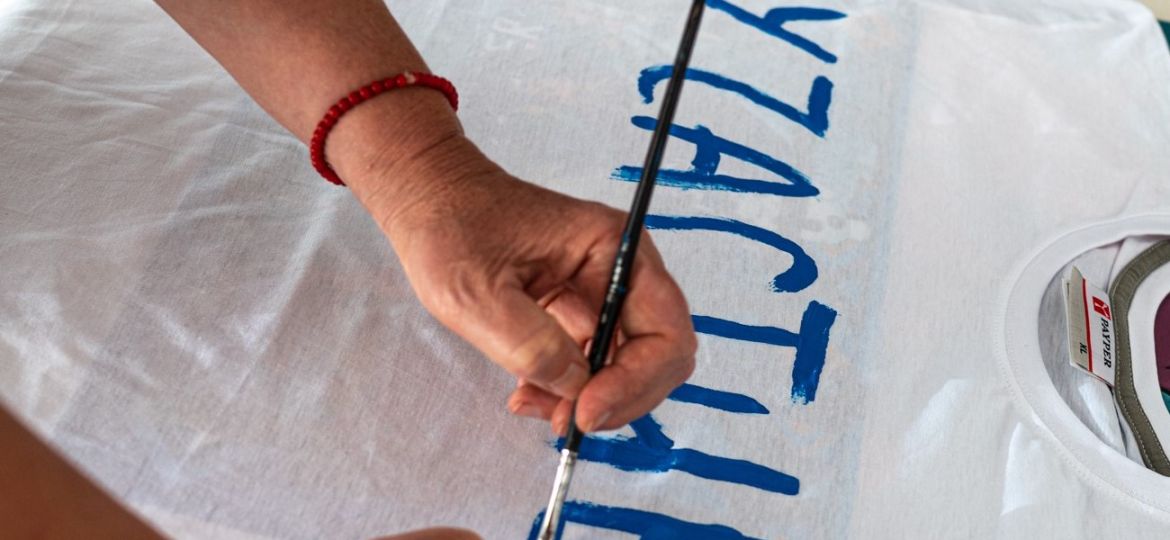“We should not wait for someone else to make those decisions – after all, is there anyone who knows better how to protect the child and keep the family together, as one, and what makes our children happier and healthier?”
We all look forward to the birth of our baby and make plans for a happy future together. Dreams, however, don’t always come true. When “a special child” is born into the family, the parents go through different phases of acceptance of this new reality.
Initially, there is shock and denial, then – anger and resentment. You ask yourself why a thousand times, but there’s no answer. You’re vexed with God, with your partner, with yourself, and with the whole world. Then sadness and chronic depression set in. You cry your eyes out until you feel no pain – at home, in the park, in the restaurant, but most often – in the bathroom, on the cold floor, when everyone’s sleeping.
After all that comes silence. And acceptance, at least some, of the reality and the child’s diagnosis and the start of a new and even more terrible struggle – with society and the lack of accessibility. This struggle you’ll wage for years for choosing not to abandon your child with disability as you were “advised” in the maternity hospital. It’s the one about which you’ll keep asking yourself time after time if it’s worth fighting with so many doors shut in the face, yours and your child’s, the moment the diagnosis’s come up.
On the day my child was born, I became a mother.
On the day my child was diagnosed with cerebral palsy, I became a nurse, a teacher, a physiotherapist, an occupational therapist, a speech therapist, a specialist in any kind of emergency. I learnt to understand my child without words, to be his voice, his eyes and his ears, his hands and his feet, his personal lawyer… I was now “S.’s mother”, and as Maria, I was forever gone.
There is no psychological support, no social support, no information. There isn’t a shoulder to lean on in your worst moments, to pull yourself together for what is yet to come.
And what about the mothers of children with disabilities fleeing the war in Ukraine? What do they have to go through? They have left behind their homes, their families and their entire hard-won support system to come to us looking for help. But we have nothing to give. Because we have no mechanisms to set in action, no life-saving food and medicines, no orthopaedic, positioning and transport aids. So we keep passing them on to Germany. As fast as we can. Because this much at least we can do and because everyone can now see all the cracks in our system.
You need to find a way to reintegrate into society. First for yourself and then for your child. I chose to be a mother of a child with a disability who will not let the social system stand still. I decided to be an active parent who will not wait but will change the world of her own child and of the other children with disabilities. Because of the problems I faced and the experience I got, together with some other mothers, we came up with the idea to set up an organisation to support families with such children. This is how the Foundation for Children with Cerebral Palsy was born. The main aim of the foundation is to help parents by supporting them from the very beginning – help and prevention of abandonment of children starting as early as the maternity hospital, and then information and support in the search for the “path” that lies ahead; last but not least – social reintegration for the parent.
As mothers of children with disabilities we should support each other and stand as one when politicians are making decisions about our children. We should not wait for someone else to make those decisions – after all, is there anyone who knows better how to protect the child and keep the family together, as one, and what makes our children happier and healthier? If we are actively involved, we can help to create better services for our children, an accessible and inclusive environment for learning, mobility and development, as for all other children. In this way, we as parents will also become “normal” again, so we can remember who we are, what dreams and plans we have, and avoid getting lost as individuals.
Code Participation Foundation implements project “Participation, Advising, Collaboration, Trust” aiming to support a group of active parents and young people with lived experience of care in Bulgaria – “Expert Friends” of Tanya’s Dream Fund, by developing their self-advocacy and leadership skills.
